THCA Flower Strain Development: Oregon's Innovation in Hemp Breeding at Oregon Hemp Flower Farm
The landscape of hemp cultivation has undergone a dramatic transformation in recent years, with Oregon emerging as a pioneering force in developing innovative THCA flower strains. At the forefront of this revolution stands Oregon Hemp Flower Farm, where cutting-edge strain development oregon techniques are reshaping the future of hemp breeding. This comprehensive exploration delves into the sophisticated world of THCA strain creation, examining how advanced genetic research and innovative cultivation methods are producing the next generation of premium hemp flowers.
The Foundation of Hemp Breeding Excellence
Oregon's climate and agricultural heritage have created the perfect storm for hemp breeding innovation. The state's diverse microclimates, ranging from coastal fog-kissed valleys to high desert plateaus, provide hemp breeders with natural laboratories for testing genetic variations under different environmental conditions. Oregon Hemp Flower Farm leverages this geographical advantage, utilizing multiple cultivation sites to develop strains that demonstrate exceptional adaptability and resilience.
The foundation of successful hemp breeding lies in understanding the complex genetic architecture of cannabis plants. THCA (tetrahydrocannabinolic acid) serves as the precursor to THC, remaining in its acidic form until decarboxylation occurs through heat or time. This molecular characteristic has opened new avenues for new thca strains that maintain compliance with federal hemp regulations while offering enhanced therapeutic potential.
Modern hemp breeding programs require sophisticated understanding of plant genetics, environmental interactions, and consumer preferences. Oregon Hemp Flower Farm has invested heavily in genetic testing equipment, climate-controlled breeding facilities, and partnerships with agricultural research institutions to ensure their breeding programs remain at the cutting edge of scientific advancement.
Advanced Genetic Techniques in THCA Development
The development of superior THCA strains requires implementation of advanced genetic techniques that go far beyond traditional breeding methods. Genetic improvement hemp programs now incorporate molecular markers, genetic mapping, and phenotypic analysis to identify and propagate desirable traits with unprecedented precision.
One of the most significant advances in hemp breeding involves the use of marker-assisted selection (MAS), which allows breeders to identify specific genetic sequences associated with desired characteristics before plants reach maturity. This technology dramatically reduces the time required to develop new strains while increasing the probability of success in breeding programs. Oregon Hemp Flower Farm utilizes sophisticated genetic screening protocols to identify plants carrying optimal combinations of cannabinoid production genes, terpene profiles, and disease resistance markers.
Genomic selection represents another breakthrough technology employed in modern hemp breeding. By analyzing thousands of genetic markers across the hemp genome, breeders can predict the performance of individual plants with remarkable accuracy. This predictive capability enables the selection of superior parent plants for breeding programs, accelerating the development of new strains with enhanced THCA production and improved agronomic characteristics.
The integration of tissue culture techniques has revolutionized the propagation of elite hemp genetics. Through micropropagation, Oregon Hemp Flower Farm can rapidly multiply superior genetic lines while maintaining genetic uniformity and eliminating the risk of pathogen transmission. This technology ensures that breakthrough strains can be scaled up for commercial production without genetic drift or quality degradation.
Comprehensive Breeding Programs in Oregon
Oregon's progressive regulatory environment and agricultural expertise have fostered the development of comprehensive breeding programs oregon that serve as models for the global hemp industry. These programs integrate traditional breeding wisdom with cutting-edge scientific methodologies, creating a synergistic approach that maximizes genetic potential while maintaining practical feasibility.
The structure of successful breeding programs requires careful coordination of multiple breeding cycles, extensive field testing, and rigorous quality assessment protocols. Oregon Hemp Flower Farm operates a multi-year breeding pipeline that begins with genetic collection and characterization, progresses through controlled crosses and selection phases, and culminates in commercial variety development and release.
Population improvement strategies form the backbone of effective hemp breeding programs. By maintaining diverse genetic pools and implementing recurrent selection procedures, breeders can continuously improve the overall quality of their breeding populations while developing specific varieties for targeted applications. This approach ensures long-term genetic progress while providing the flexibility to respond to changing market demands and regulatory requirements.
The collaboration between Oregon Hemp Flower Farm and academic research institutions has created unprecedented opportunities for advancing hemp breeding science. These partnerships provide access to state-of-the-art research facilities, graduate student researchers, and funding opportunities that would be difficult to achieve independently. The resulting research contributes to the global understanding of hemp genetics while directly benefiting commercial breeding programs.
The Art and Science of Strain Creation
The process of strain creation thca combines scientific rigor with artistic intuition, requiring breeders to balance multiple competing objectives while maintaining focus on ultimate quality and market acceptance. Successful strain development begins with clear breeding objectives that define target characteristics for cannabinoid content, terpene profiles, plant architecture, and environmental adaptation.
Parent selection represents the most critical decision in any breeding program. The genetic potential of offspring is fundamentally limited by the genetic diversity and quality of parent plants. Oregon Hemp Flower Farm maintains extensive genetic collections that serve as repositories of valuable breeding material, ensuring access to diverse genetic backgrounds for creating novel strain combinations.
The crossing process itself requires careful timing and technique to maximize seed production while maintaining genetic integrity. Controlled pollination procedures ensure accurate pedigree records and prevent contamination from unwanted pollen sources. Environmental conditions during flowering and seed development significantly influence the genetic expression of offspring, requiring precise control of growing conditions throughout the breeding cycle.
Selection methodology determines the ultimate success of breeding programs. Multi-stage selection processes evaluate plants at different developmental stages, ensuring that selected individuals demonstrate consistently superior performance across diverse conditions. Early-generation screening focuses on easily observable characteristics, while advanced selections undergo comprehensive laboratory analysis for cannabinoid content, terpene profiles, and genetic markers.
Cultivar Development and Genetic Innovation
Modern cultivar development hemp requires integration of multiple scientific disciplines, including plant breeding, molecular biology, biochemistry, and agricultural engineering. This interdisciplinary approach enables the development of varieties that excel across multiple performance criteria while meeting specific market requirements.
The naming and characterization of new cultivars follows established protocols that ensure genetic integrity and facilitate commercial adoption. Each new variety undergoes extensive testing to verify genetic stability, environmental adaptation, and production characteristics. This evaluation process typically spans multiple growing seasons and diverse geographic locations to ensure consistent performance across varying conditions.
Intellectual property protection has become increasingly important in hemp breeding as the commercial value of superior genetics continues to grow. Oregon Hemp Flower Farm invests in comprehensive variety protection strategies that safeguard their breeding innovations while enabling commercial licensing opportunities with qualified cultivation partners.
The documentation and preservation of breeding records ensures the long-term viability of genetic improvement programs. Detailed pedigree information, selection criteria, and performance data provide the foundation for future breeding decisions and enable the reconstruction of successful breeding strategies when developing related varieties.
Cutting-Edge Genetics Research in Oregon
Oregon's commitment to genetics research oregon has established the state as a global leader in hemp breeding innovation. University research programs, private breeding companies, and government agencies collaborate to advance the scientific understanding of hemp genetics while developing practical applications for commercial production.
Genomic sequencing projects have revolutionized the understanding of hemp genetic architecture, revealing the complex interactions between genes that control cannabinoid production, plant development, and environmental responses. These discoveries enable more precise breeding strategies and accelerate the development of varieties with enhanced characteristics.
Epigenetic research represents an emerging frontier in hemp breeding science. Environmental influences on gene expression can be transmitted to offspring, creating opportunities for developing varieties adapted to specific growing conditions. Oregon Hemp Flower Farm participates in collaborative research projects investigating epigenetic inheritance in hemp, contributing to the global understanding of this complex phenomenon.
Metabolomics studies examine the complete chemical profile of hemp plants, revealing the intricate relationships between genetics, environment, and chemical composition. This research provides insights into optimizing cultivation practices for maximizing desired compound production while minimizing unwanted constituents.
Advanced Breeding Techniques and Methodologies
The implementation of sophisticated breeding techniques hemp has transformed the efficiency and precision of genetic improvement programs. Modern breeding methodologies integrate multiple selection strategies to optimize genetic gain while maintaining genetic diversity and long-term breeding potential.
Doubled haploid technology enables the rapid development of completely homozygous breeding lines, accelerating the fixation of desirable gene combinations. This technique involves inducing chromosome doubling in haploid plants produced through tissue culture, creating breeding lines that are genetically uniform and highly predictable in their breeding behavior.
Speed breeding protocols utilize controlled environment facilities to accelerate plant development and reduce generation intervals. By manipulating photoperiod, temperature, and other environmental factors, breeders can complete multiple breeding cycles within a single calendar year, dramatically accelerating genetic improvement rates.
Genomic prediction models utilize large-scale genetic and phenotypic datasets to predict the breeding value of individual plants. These sophisticated statistical models enable breeders to make selection decisions based on genetic potential rather than observed performance, improving selection accuracy while reducing evaluation costs.
Revolutionary Strain Innovation in THCA
The pursuit of strain innovation thca drives continuous improvement in breeding methodologies and genetic understanding. Innovative approaches to strain development focus on creating varieties that offer unique combinations of characteristics unavailable in existing cultivars.
Novel breeding objectives are emerging as market demands evolve and scientific understanding advances. Beyond traditional focus areas like cannabinoid content and yield, modern breeding programs address characteristics such as terpene diversity, disease resistance, environmental sustainability, and processing quality. These expanded breeding objectives require sophisticated evaluation protocols and multi-trait selection strategies.
Hybrid vigor exploitation represents a powerful tool for developing superior THCA varieties. By crossing genetically diverse parent lines, breeders can create hybrid varieties that exceed the performance of both parents for multiple characteristics. Oregon Hemp Flower Farm utilizes systematic hybrid development programs to identify optimal parent combinations for commercial hybrid production.
The integration of consumer preference research into breeding programs ensures that new varieties meet market expectations while pushing the boundaries of genetic potential. Sensory evaluation panels, consumer surveys, and market research inform breeding decisions, creating varieties that excel in both laboratory tests and real-world applications.
Indoor THCA Flower Cultivation Excellence
The production of premium indoor thca flower requires specialized cultivation techniques optimized for controlled environment production. Indoor cultivation offers unprecedented control over environmental conditions, enabling the expression of genetic potential that might be limited under outdoor conditions.
Environmental control systems in modern indoor facilities regulate temperature, humidity, light intensity, and atmospheric composition with precision impossible to achieve in outdoor settings. These controlled conditions enable year-round production while optimizing plant development for maximum cannabinoid and terpene production.
Lighting technology has evolved dramatically with the adoption of LED systems that provide optimal spectral composition for hemp development. Modern LED arrays can be programmed to deliver specific light recipes that promote desired plant responses, from vegetative growth optimization to flower development enhancement.
Hydroponic production systems provide precise control over plant nutrition while maximizing resource efficiency. Advanced nutrient delivery systems can adjust fertilizer composition throughout the growing cycle to match plant developmental requirements, optimizing both yield and quality parameters.
Outdoor THCA Flower Production Mastery
The cultivation of exceptional outdoor thca flower leverages Oregon's favorable climate while implementing sophisticated agronomic practices that maximize genetic potential under natural conditions. Outdoor production offers advantages in terms of production scale, energy efficiency, and the expression of complex terpene profiles that develop under natural sunlight.
Site selection for outdoor THCA production requires careful evaluation of microclimate conditions, soil characteristics, and environmental factors that influence plant development. Oregon Hemp Flower Farm utilizes detailed climate monitoring and soil analysis to optimize site selection and preparation for each growing season.
Sustainable agricultural practices form the foundation of responsible outdoor hemp production. Integrated pest management strategies minimize environmental impact while protecting crop quality. Cover cropping, crop rotation, and organic soil amendments maintain soil health and promote beneficial microbial communities that support plant health and cannabinoid production.
Weather management strategies help mitigate the risks associated with outdoor production while capitalizing on favorable conditions. Protective structures, irrigation systems, and harvest timing optimization enable consistent production quality despite natural environmental variability.
Greenhouse THCA Flower Innovation
The production of superior greenhouse thca flower combines the environmental control advantages of indoor production with the energy efficiency and natural light benefits of outdoor cultivation. Greenhouse production systems offer optimal conditions for expressing the full genetic potential of elite THCA varieties.
Advanced greenhouse designs incorporate automated climate control systems that maintain optimal growing conditions throughout the production cycle. These systems monitor and adjust temperature, humidity, ventilation, and supplemental lighting to create ideal conditions for cannabinoid and terpene development.
Integrated pest and disease management systems in modern greenhouses utilize biological control agents, beneficial insects, and targeted applications of approved materials to maintain plant health while minimizing environmental impact. These sustainable approaches ensure consistent production quality while meeting organic and natural production standards.
Year-round production capabilities enable greenhouse facilities to supply consistent quantities of high-quality THCA flower regardless of seasonal variations. This production reliability supports stable supply chains and enables long-term planning for market development and expansion.
Comprehensive THCA Flower Cultivation Strategies
Successful thca flower cultivation requires integration of breeding innovation with optimized production practices that maximize the expression of genetic potential. Cultivation strategies must address the unique requirements of THCA varieties while maintaining compliance with regulatory requirements and quality standards.
Strain-specific cultivation protocols recognize that different varieties may require unique growing conditions to achieve optimal performance. Oregon Hemp Flower Farm develops customized cultivation guidelines for each variety, addressing specific requirements for nutrition, environmental conditions, and harvest timing.
Quality assurance programs ensure consistent production standards and product safety throughout the cultivation process. Comprehensive testing protocols monitor plant health, environmental conditions, and final product quality to maintain the highest standards of excellence.
Harvest optimization strategies focus on timing and techniques that maximize cannabinoid content while preserving terpene profiles and overall flower quality. Post-harvest processing methods including drying, curing, and storage significantly influence final product characteristics and shelf life.
Premium Indoor THCA Production Excellence
The production of premium indoor thca represents the pinnacle of controlled environment cultivation, combining elite genetics with sophisticated production techniques to create products that exceed the highest quality standards. Premium production requires attention to every detail of the cultivation process, from seed selection through final packaging.
Genetic selection for indoor production focuses on varieties that excel under artificial lighting conditions while producing exceptional cannabinoid and terpene profiles. Indoor-optimized varieties often display compact plant architecture, rapid flowering response, and enhanced resin production that maximizes quality in controlled environments.
Environmental optimization for premium production requires precise control of all growing conditions throughout the entire production cycle. Advanced monitoring systems track hundreds of environmental parameters in real-time, enabling immediate responses to any deviations from optimal conditions.
Labor management and training programs ensure that all cultivation activities are performed to the highest standards. Skilled technicians receive ongoing training in advanced cultivation techniques, quality assessment, and safety protocols to maintain consistent production excellence.
The Future of THCA Strain Development
The future of THCA strain development promises continued innovation as breeding technologies advance and market demands evolve. Emerging technologies including gene editing, artificial intelligence, and precision agriculture will further accelerate genetic improvement while reducing development costs and timelines.
Sustainable breeding practices will become increasingly important as environmental concerns and regulatory requirements evolve. Oregon Hemp Flower Farm is committed to developing varieties that excel in low-input production systems while maintaining superior quality and therapeutic potential.
International collaboration in hemp breeding research will accelerate global genetic improvement while ensuring that innovations benefit the entire hemp industry. Shared research initiatives and germplasm exchange programs will expand the genetic diversity available for breeding programs while reducing duplication of research efforts.
Consumer education and market development will continue to drive demand for innovative THCA varieties with unique characteristics and enhanced therapeutic potential. Oregon Hemp Flower Farm remains committed to developing varieties that meet evolving consumer preferences while maintaining the highest standards of quality and safety.
Conclusion: Leading the Hemp Breeding Revolution
Oregon Hemp Flower Farm's commitment to innovation in THCA strain development represents more than just commercial success—it embodies a vision for the future of hemp agriculture that combines scientific excellence with practical application. Through advanced breeding techniques, comprehensive genetic research, and optimized cultivation practices, Oregon continues to set the standard for hemp breeding innovation worldwide.
The integration of cutting-edge genetic technologies with traditional breeding wisdom creates unprecedented opportunities for developing THCA varieties that exceed current performance standards while meeting emerging market demands. As regulatory frameworks continue to evolve and consumer understanding of hemp products deepens, the importance of superior genetics becomes increasingly apparent.
The collaborative approach to research and development fostered by Oregon's hemp breeding community ensures that innovations benefit the entire industry while maintaining competitive advantages for participating organizations. This balance between cooperation and competition drives continuous improvement while accelerating the overall advancement of hemp breeding science.
Looking toward the future, Oregon Hemp Flower Farm remains committed to pushing the boundaries of what's possible in THCA strain development. Through continued investment in research and development, maintenance of diverse genetic collections, and implementation of sustainable production practices, Oregon will continue to lead the global hemp breeding revolution for years to come.
The success of Oregon's hemp breeding programs demonstrates the potential for agricultural innovation when scientific expertise combines with entrepreneurial vision and regulatory support. As the hemp industry continues to mature, the genetic innovations emerging from Oregon will provide the foundation for sustainable growth and continued advancement in therapeutic hemp applications worldwide.

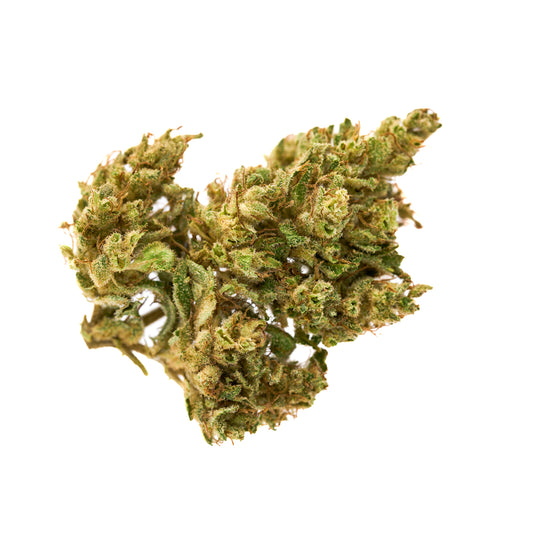
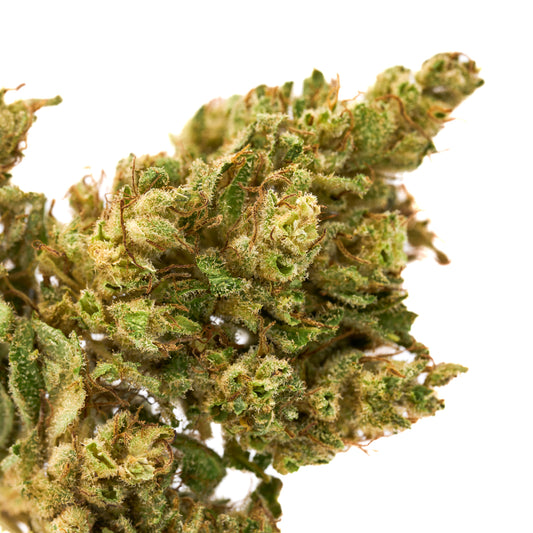

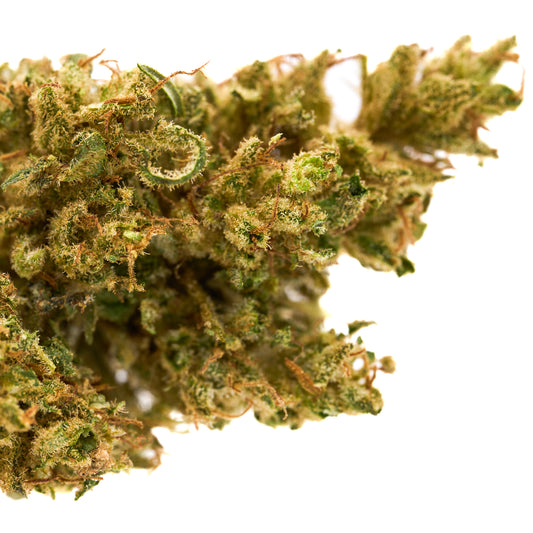
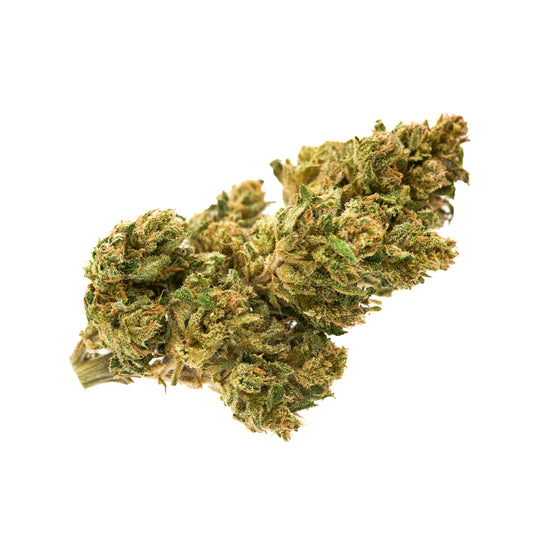
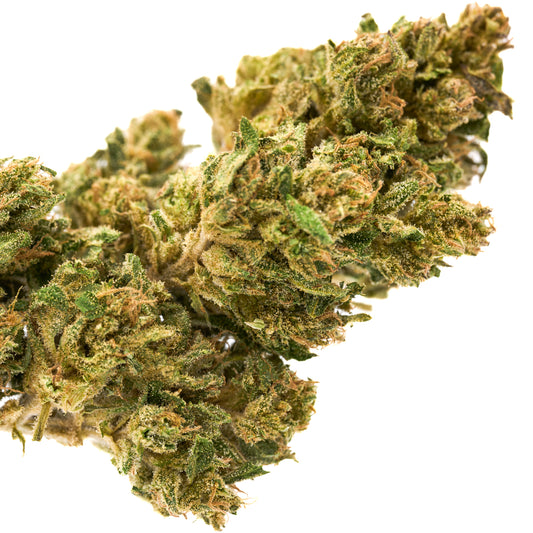



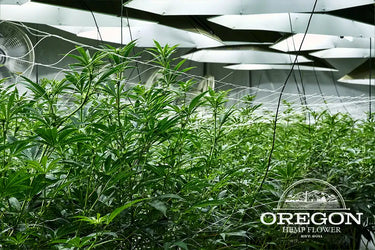

Leave a comment
Please note, comments need to be approved before they are published.